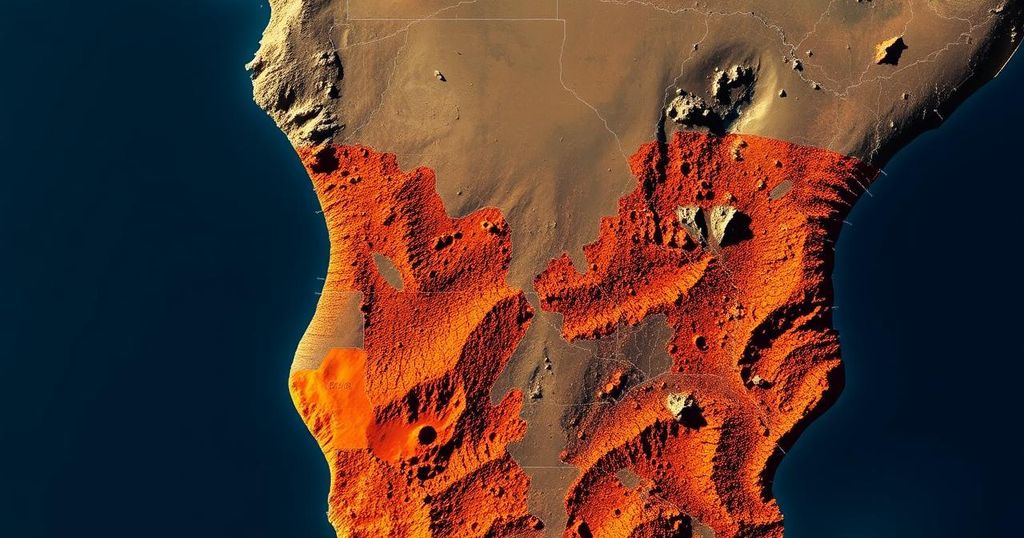Southern Africa is undergoing a severe drought, the worst in a century, impacting 27 million people, with 21 million children suffering from malnutrition. Countries have declared national disasters as food security deteriorates, and the crisis is expected to worsen until next year’s harvests. The drought is driven by El Niño and climate change, leading to significant agricultural losses.
Southern Africa is currently experiencing the worst drought in a century, affecting over 27 million individuals, with alarming consequences for food security and public health. The United Nations has reported that this crisis has led to widespread hunger, particularly impacting 21 million children who are malnourished. Several countries, including Lesotho, Malawi, Namibia, Zambia, and Zimbabwe, have declared states of national disaster as crop failures and livestock deaths mount. Moreover, Angola and Mozambique are facing severe conditions as this drought persists. According to the World Food Programme (WFP), the situation is likely to worsen until harvests in March or April of the following year, with food shortages predicted to intensify.
The current drought in Southern Africa is exacerbated by climatic factors, particularly the El Niño phenomenon, which has resulted in below-average rainfall coupled with rising temperatures attributed to climate change. These environmental challenges severely threaten small-scale agriculture, which relies heavily on rainfall for success. Close to 70 percent of the harvest has been lost in Zambia, while Zimbabwe has suffered an 80 percent decline. This crisis not only affects agricultural output but also reduces hydropower capacity, which is essential for electricity in the region. As a measure of desperation, authorities in Zimbabwe and Namibia have had to resort to culling wildlife to provide sustenance for the starving population.
In summary, the historic drought affecting Southern Africa presents a serious humanitarian crisis that compromises the health and livelihood of millions. Immediate intervention may be needed to alleviate hunger and prevent further loss of life as the region strives to recover from this devastating environmental catastrophe.
Original Source: www.aljazeera.com







